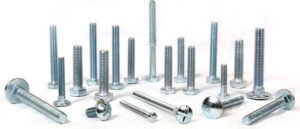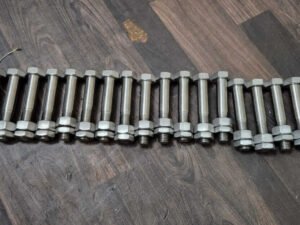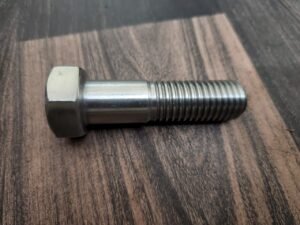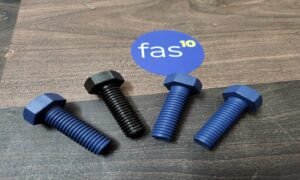Corrosion protection may be a complex process since it all depends on the ambient conditions. Material that’s highly immune to corrosion during a particular environment could also be completely unsuitable and corrode quickly in other environments. steel and low-alloy steel, which eventually rust in damp environments, are otherwise very corrosion-resistant to concentrated vitriol .
High-quality coatings provide a reduction in costs for, among other things, replacement parts, repairs and therefore the loss of revenue thanks to corrosion damage. High-quality coatings make work highly efficient, for instance, by enabling self-lubrication and color-coding. High-quality coatings, if carefully selected, provide a lower environmental impact (longer service life, less need for replacement parts, less need for transport, higher possibilities to recycle components). High-quality coatings lower the necessity for corrosion damage inspections in structures with high safety requirements.
By creating an outermost layer of corrosion resistant materials, e.g. a metal oxide on a coating, the speed at which corrosion takes place is often reduced. This is by definition called passivation and it’s often done as a follow-up coating of zinc or a zinc alloy.
Hot dip galvanisation – hot dipping process
The material is coated by being dipped in molten metal (above 420°C for pure zinc).This provides better protection than electrogalvanization.
Chromisation, i.e., follow-up coating with hexavalent chrome (Cr6+), is now used less frequently thanks to the very fact that Cr6+ is extremely hazardous to the environment. Passivation is employed instead.
In the process of electro galvanization, the fabric is dipped during a solution containing metal ions and is connected to a source of electrical current, leading to the formation of a skinny coating on the surface of the fabric . One negative effect is that hydrogen embrittlement – a lessening in structural strength – can occur in, for instance , high-strength steel. However, this will be eliminated by follow-up treatment.
During phosphatization, a thin coating of iron or zinc phosphate is deposited on the fabric . The phosphate coating offers a particular amount of corrosion protection while at an equivalent time providing an honest surface for painting or lubrication. Both untreated and zinc-coated steel objects are often phosphatised.
The material is dipped during a solution containing metal flakes/scales. It’s then heated in order that the flakes melt together, forming a durable shell that binds strongly to the fabric . Coating with flakes is becoming more and more common for several reasons: it provides very effective corrosion protection, it is often combined with a mix of e.g., lubricants and it’s a comparatively environmentally friendly process.
The carbon bond PTFE, known by the commercial name Teflon, is usually utilized in combination with metallic corrosion protection to offer fasteners the specified amount of friction. Besides extreme friction characteristics, PTFE is additionally a durable plastic that doesn’t age, isn’t weakened by UV rays and is very immune to heat and chemicals.
Xylan may be a name and a family of fluoropolymer coatings which frequently contains PTFE. Xylan® provides lubrication also as wear, heat and corrosion resistance. The coatings are often colored to suit different applications.
It is essential for structural integrity that the proper type is employed . Similarly, adequate coatings ensure the longest lifespan for your fasteners by providing A level of protection for the metal underneath. Contact with harsh environments or chemicals can decrease a fastener’s lifespan, particularly if not coated properly. Damaged or rusted fasteners are often dangerous and are costly to exchange . Clearly, it’s important to urge the proper quiet coating for the work .
While not a coating (stainless steel may be a material), it’s the simplest option for rust prevention because it’s inherently corrosion resistant in many environments. That’s why chrome steel is usually utilized in marine, food and medical applications, also as in products designed for outdoor use.
Due to their visually appealing finish, these coatings are often used on fasteners which will be visible (think decorative work). Both brass and bronze are very immune to corrosion. Chrome and nickel-plated finishes provide some level of corrosion resistance to the metal, but they’re typically chosen for his or her aesthetic finish instead of for strength and protection.
Zinc is one among the foremost popular fastener coatings available. This sort of coating is comparatively inexpensive to use and protects against rust, making zinc-coated fasteners perfect for humid environments.
Yellow zinc gets its name from its electro-plating process which may create a more golden color than clear zinc coatings. Yellow zinc-coated fasteners are ideal for situations where the merchandise is probably going to return in touch with water or other liquids.
Standard zinc plating is popular, but hot-dipped galvanized coatings provide a thicker layer of zinc on the fastener’s surface, making this a far better corrosion resistant coating. Also mentioned as HD, hot dip galvanized coatings are ideal for outdoor use, particularly coastal areas where the salt content is higher. HD-coated fasteners take a significantly longer time to corrode than those with other coatings.
Known as EG, this sort of coating uses a thinner layer of zinc, offering frugal corrosion protection. EG fasteners are typically utilized in areas where less corrosion protection is required , like kitchens and bathrooms. Most fasteners utilized in roofing are electro galvanized also .
Grey phosphate is another popular sort of coating meant to elongate fastener lifespan. Phosphate coatings reduce friction, making them great for fasteners that require to be inserted. Phosphate coatings aid in corrosion resistance. This coating should only be used for indoor applications, and gray phosphate-coated fasteners shouldn’t be used with treated lumber.
- Ceramic Coated
Ceramic coatings aren’t as immune to corrosion as chrome steel , but they’re often utilized in marine applications as they provide protection against salt water spray. These coatings are often designed to pass 500hr and 1,000hr hour salt spray tests.
fas10 (Fasten) provides coated fasteners (ptfe, xylan, dacromet), alloy fasteners, exotic fasteners, brass fasteners, aluminium fasteners, stainless steel fasteners. At fas10 (Fasten) Mumbai, the leading manufacturers in high grade fasteners and stockists, we will make sure you have the right fasteners.
fas10 (Fasten) supplies a good range of hard-to-source exotic alloy and coated fasteners for specific grade applications. As you browse the ranges, you’ll see the extent of the selection available, therefore, if you’re unsure of which fastener is going to be best suited for your application, please get in touch – our sales team is always available to help together with your queries.







